Harnessing the Power of AI to Enhance Endoscopy: Promises and Pitfalls
Fellow
Division of Gastroenterology
Massachusetts General Hospital
Harvard Medical School
Boston, MA

Slideshow below.
The availability of AI technologies to improve the overall quality of GI endoscopy has grown significantly over the last decade.1 AI algorithms have shown promise in detecting malignant, infectious, and inflammatory diseases in both upper and lower GI endoscopy imaging.2 Most AI research in endoscopy is currently focused on computer-aided detection (CADe) and diagnosis (CADx), but other computer vision tools are also in development, ranging from algorithms to measure IBD activity to dysplasia detection in Barrett's esophagus.2,3
Improved lesion detection and classification with AI can support clinical decision-making and lead to better patient outcomes, cost savings, clinician time management, and other efficiencies within the health care system.2-7 However, some substantial barriers must be overcome and current projections must be validated with clinical and real-world trials before we can fully rely on AI in these settings.8-11
1
-
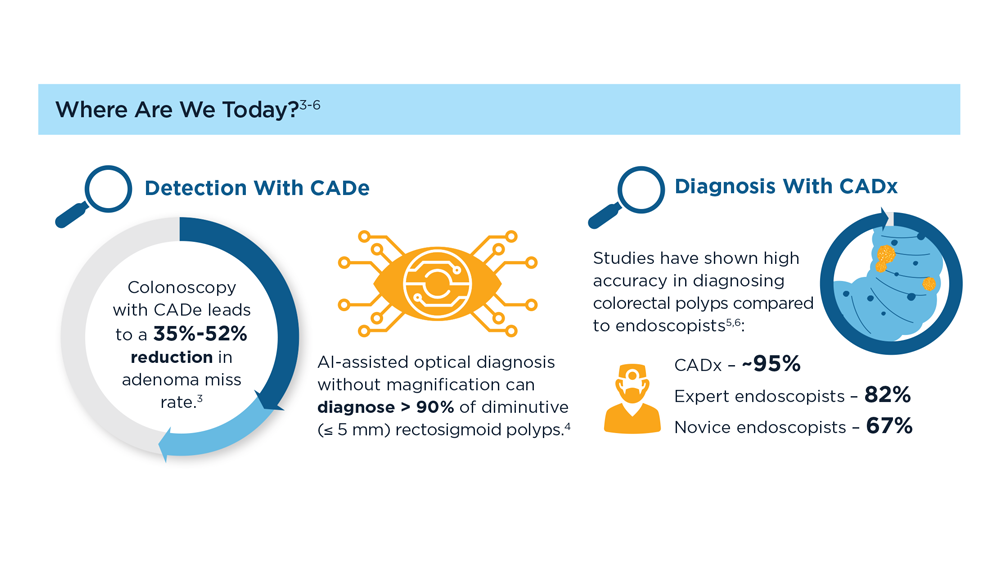
-
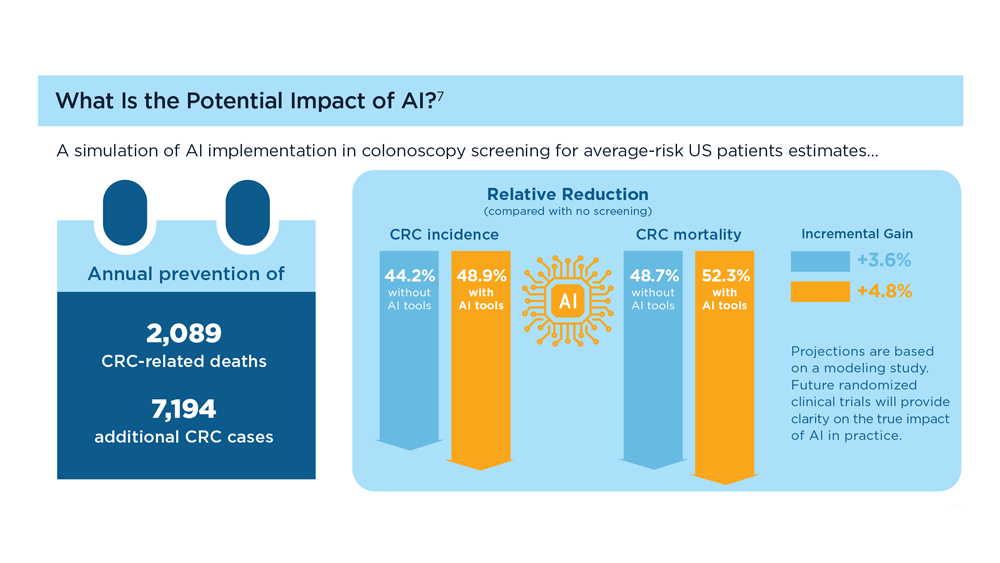
-
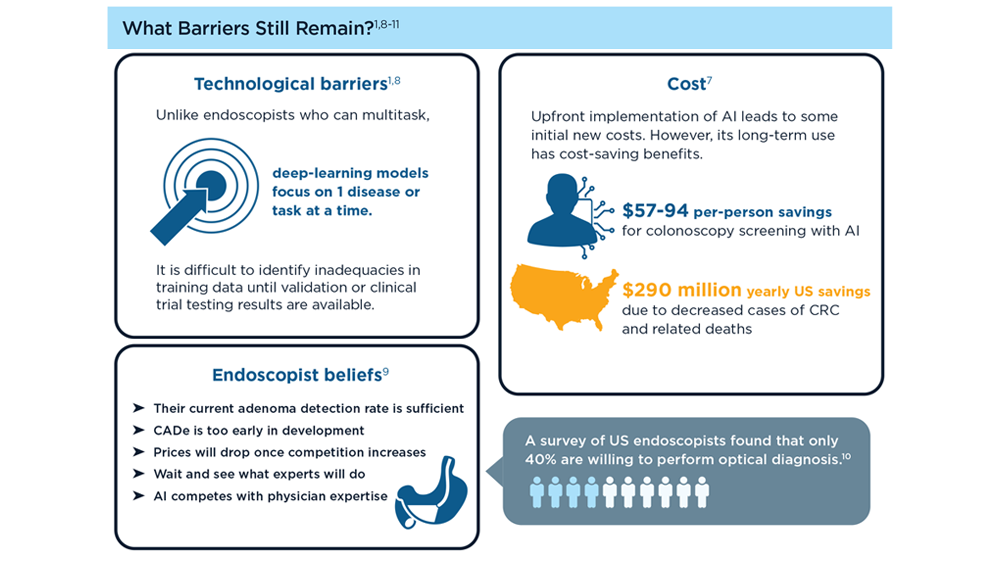
-
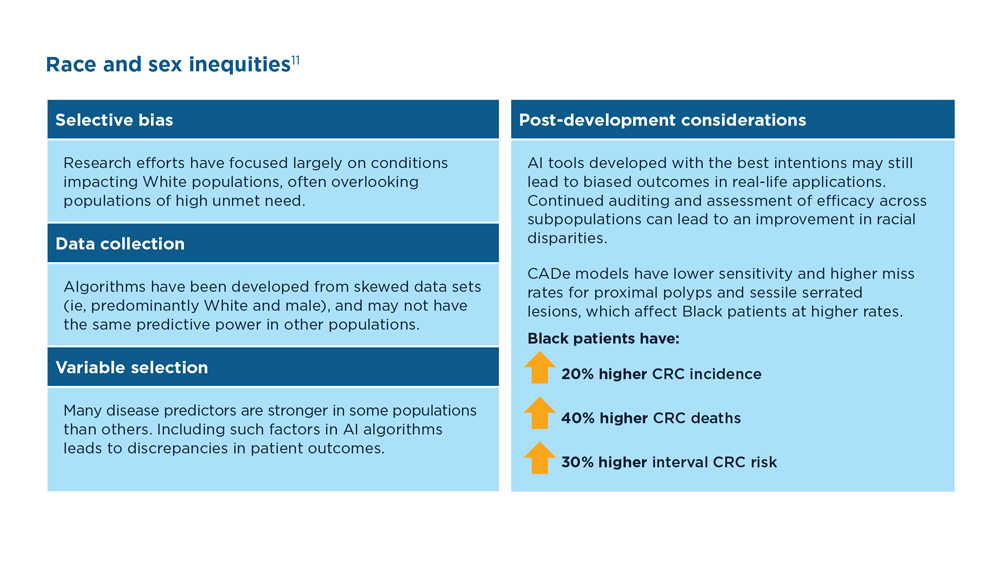
-
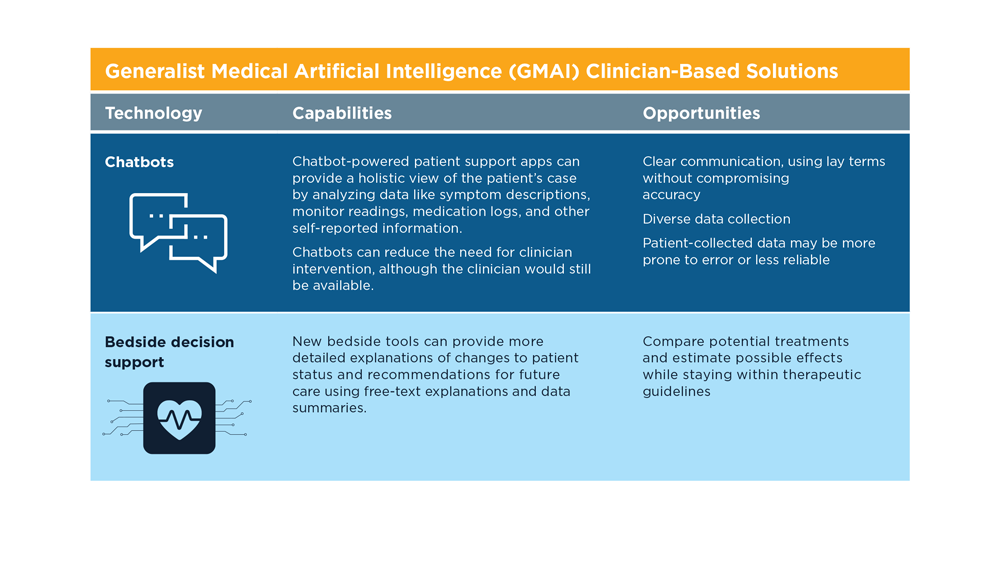
The Future of AI in Medical Practice12,13
More large-scale AI applications on the horizon will continue to benefit both clinicians—aiding in informed decision-making and freeing up time—and patients, in the form of improved outcomes. However, many challenges must still be overcome before we can fully rely on these technologies. -
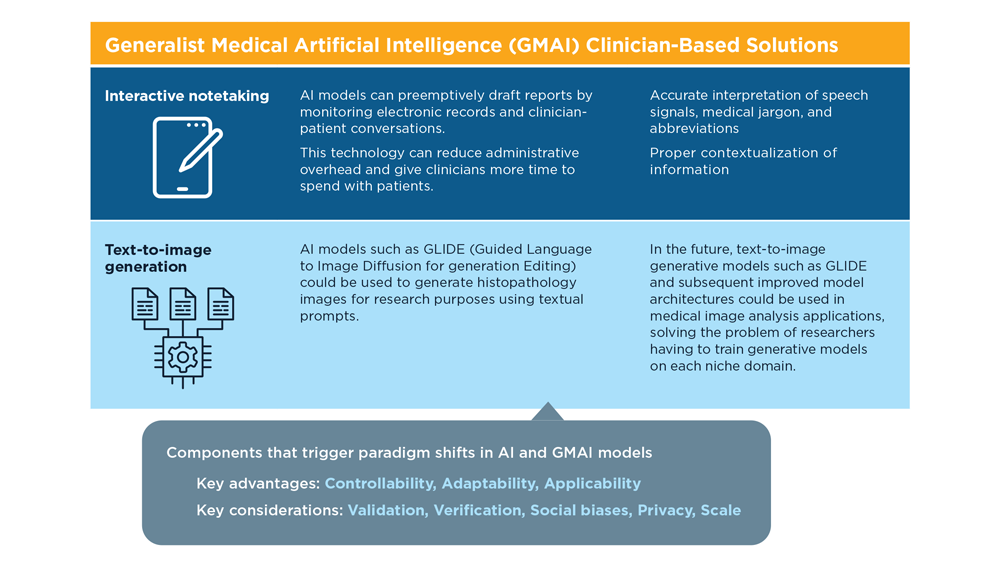
Next Article:
More Endoscopy News
- Liquid Fasting Mitigates Negative Pre-Surgery Impact of Semaglutide
- GLP-1 RAs Safe in the Perioperative Period: New Guidance
- AI-Assisted Colonoscopy Linked to Higher Rate of Benign Lesion Removal
- Short-Course Vasoconstrictors After EVL: Time for a New Standard of Care?
- Weight Loss Surgery, Obesity Drugs Achieve Similar Results but Have Different Safety Profiles
- Medical, Endoscopic, and Surgical Management of Gastroesophageal Reflux Disease
- Low-Volume Bowel Prep Easier, as Effective as Standard Prep in Hospitalized Patients
- AI Tool Helps Detect, Differentiate Pancreatic Lesions During Endoscopic Ultrasound
USMSTF Recommendations: When to surgically manage colorectal polyps


